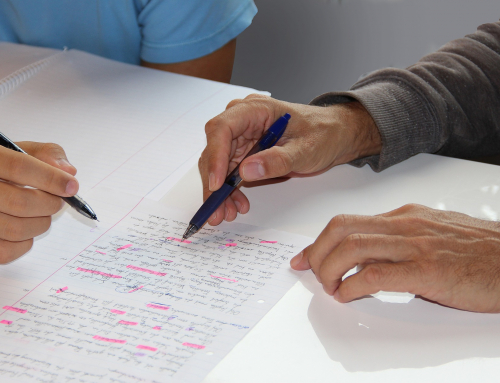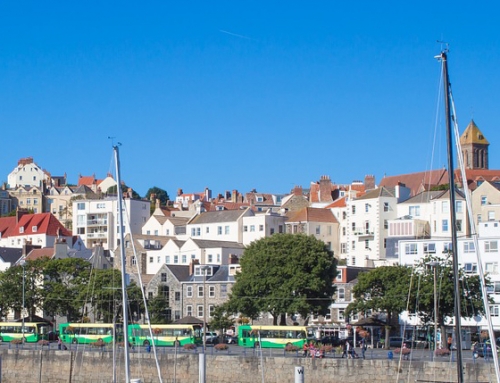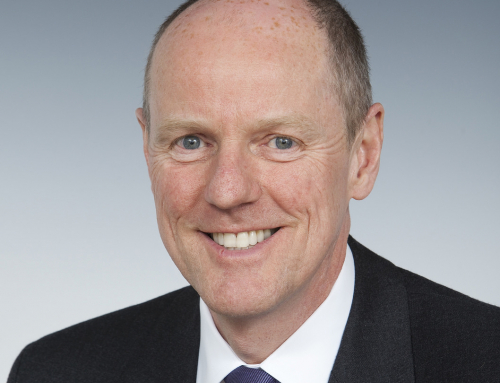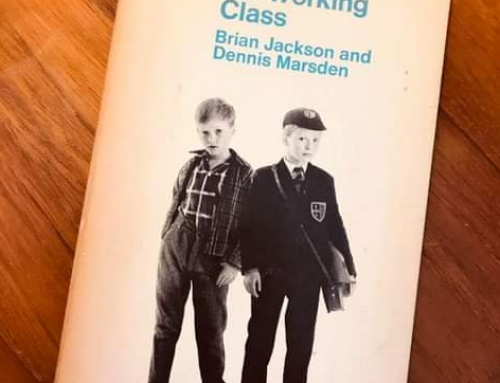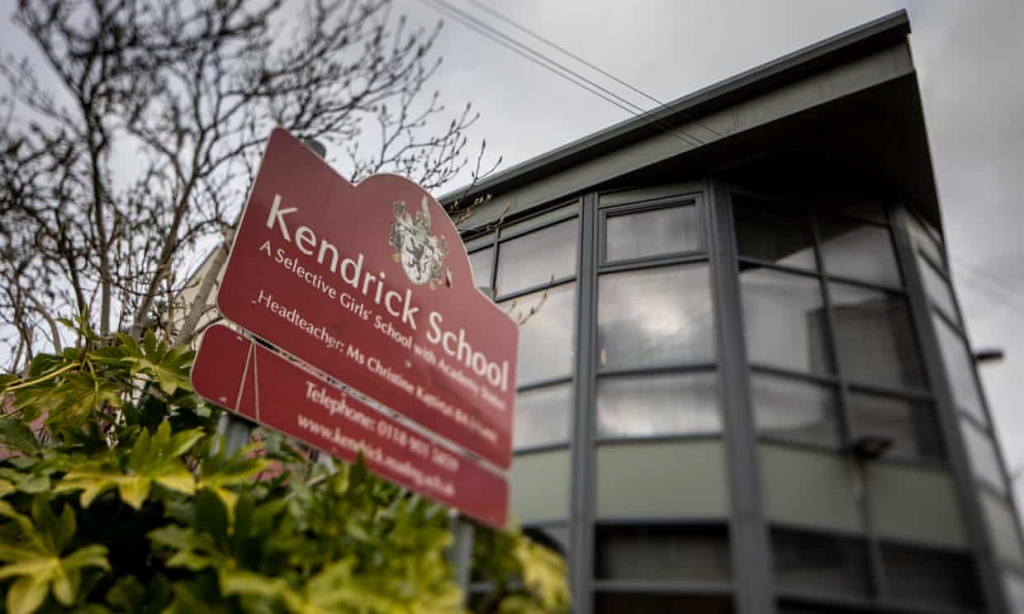 Grammar school ‘fair access’ plans are failing
Grammar school ‘fair access’ plans are failing
The Guardian reports on the fact grammar school’s ‘fair access’ plans to admit poorer pupils often fail to boost numbers of disadvantaged pupils. Comprehensive Future’s statistician, James Coombs, has studied the data and discovered major problems. He points out that expanding grammar schools, Sir William Borlase’s and John Hampden in Buckinghamshire, have prioritised “up to” 10 and 12 places for disadvantaged children, but it appears that only two or three places are likely to go to such pupils.
Labour MP Lucy Powell said none of the schools should be allowed to expand until they had improved those figures. “Grammar schools do nothing for social mobility, they do the opposite – they entrench it,” she said. “I just can’t see how the government can justify allowing schools to expand when they have such poor records in reflecting their communities.”
A second round of the £50 million Selective School Expansion Fund announced
The DfE has announced another funding round of £50 million for the Selective School Expansion Fund (SSEF). There were 41 applications for last year’s SSEF fund with 16 schools successful, so plenty of ambitious grammars are bound to apply again this year. The schools are required to submit plans to improve access for disadvantaged pupils, but the DfE admits that selective schools are not required to predict how many poorer pupils will achieve places. There seems to be no scrutiny of evidence from 11-plus tests when selective schools submit their bids.
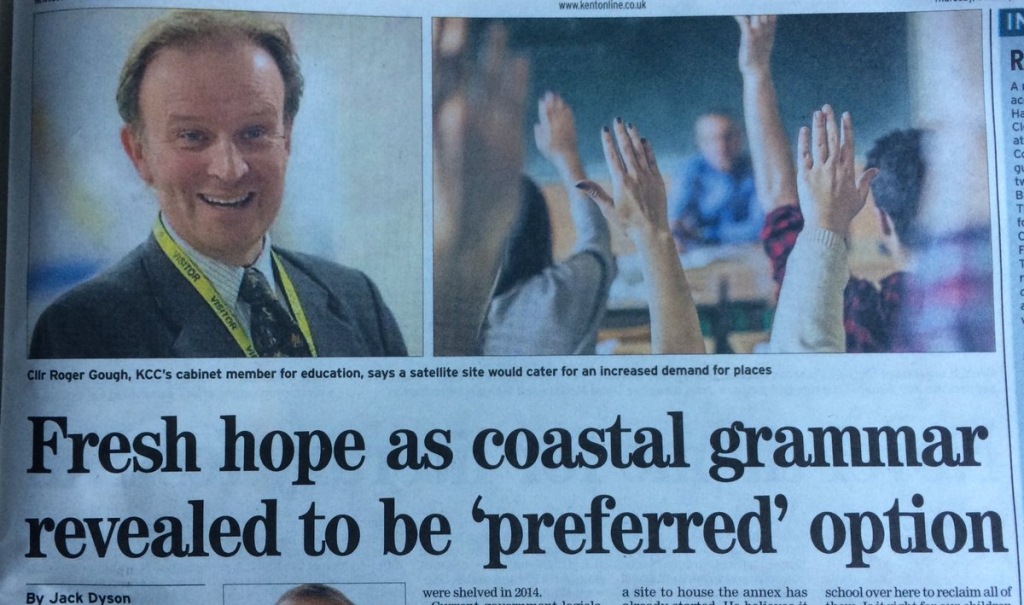 Special help for legally dubious ‘satellite’ grammar schools
Special help for legally dubious ‘satellite’ grammar schools
The TES reported that the DfE has a package of extra support available to schools that wish to expand by building a new school building miles apart from the original school. The controversial Weald of Kent grammar school ‘annexe’ in Sevenoaks was widely criticised as an attempt to bypass the 1998 law that forbids new selective schools, and now more of these ‘annexe’ schools seem likely. Our Chair, Dr. Nuala Burgess said, “These illicit ‘satellite’ grammar schools are a clear breach of current law, and we will certainly consider a judicial review to challenge any such plans. The government should not support backdoor routes to building new grammar schools, it should respect our current law.”
A Kent newspaper is already suggesting that a ‘satellite’ grammar school may be built on the East Kent coast in Whitstable or Herne Bay. Professor Stephen Gorard commented on this through Twitter saying, “It will deprive five or more other schools of a high proportion of their most talented pupils, reducing cohesion, aspiration and self-esteem. This is nowhere near compensated for by the purported benefits. He highlighted his research which shows evidence of the problems with selection.
Grammar schools claiming expansion cash have promised to undertake ‘outreach’ work with primary schools to prepare poorer children for sitting the 11-plus. Many of these plans involve sixth form pupils, and it seems quite wrong that pupils should take time away from their own studies to train primary school pupils for a school entrance exam. Dr. Nuala Burgess said, “I wouldn’t for a minute think the sixth formers wouldn’t have the best intentions – but don’t kid yourself that they’re equipped to teach primary school pupils. The TA’s would be better equipped. And no matter how good these sixth formers are they will not be a patch on the private tutors that the middle classes can afford.”
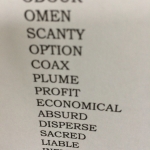 “Unconscious bias” in 11-plus tests
“Unconscious bias” in 11-plus tests
A blog post by an 11-plus tutor highlighted another unfairness of the 11-plus system. She said, “Language and moreover semantics are so crucial to achieving success in these tests… if you have not had wide experiences, access to certain topics and discussions and/or you do not read widely, language and your understanding of language can be a major stumbling block in passing the tests. For example, I remember a verbal reasoning question that my pupil was faced with that asked him to spot the odd word out of bridle, saddle, rein and horse. He circled bridle. When I asked him why – he said a bridle was to do with a wedding. He clearly had no idea of the equestrian context of the word and in fact this was one of several words that he did not know the meaning of e.g. Buoy, Epoch and Plateau. This is a very bright young man, with professional parents and access to much more than many children I work with in the inner city, yet his lack of understanding of these words made me really think about the possibly unconscious bias of these tests.”
This is a serious issue, and secrecy with 11-plus testing makes it hard to evaluate the extent of this problem. We know some grammar schools write their own test papers, without even using the services of professional examiners.
 “The last thing I want is for 10 and 11-year-olds to be fearful or nervous about taking a test.”
“The last thing I want is for 10 and 11-year-olds to be fearful or nervous about taking a test.”
Damian Hinds pointed out that SATs tests should not be stressful for pupils, and claimed schools that put pressure on pupils are “getting it wrong.” He went on to say, “The last thing I want is for 10 and 11-year-olds to be fearful or nervous about taking a test.” Yet he is a keen supporter of grammar schools, and seems to have forgotten that selective schools can’t exist without using a high stakes and extremely stressful test 10-year-oldsds. Too often the thousands of children in our selective areas are forgotten, but an education secretary who supports grammar school expansion should be aware that an 11-plus test often makes children cry, while many people recall its verdict decades later.
Comprehensive Future needs your financial support, please consider donating to help us continue our campaign. DONATE NOW.


